Advertisements
Advertisements
प्रश्न
The path of a ray of light coming from air passing through a rectangular glass slab traced by four students are shown as A, B, C and D in Figure Which one of them is correct?
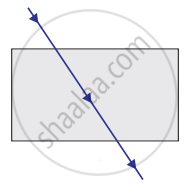 |
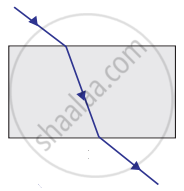 |
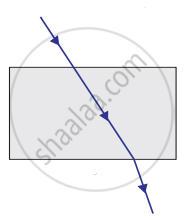 |
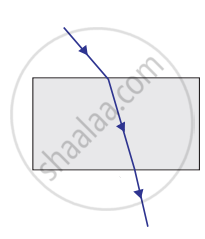 |
| A | B | C | D |
पर्याय
A
B
C
D
उत्तर
B
Explanation -
The light rays when pass through the rectangular glass slab, they undergo refraction such that the emergent ray is parallel to the incident ray. It is correctly shown in figure B.
APPEARS IN
संबंधित प्रश्न
Noor, a young student, was trying to demonstrate some properties of light in her Science project work. She kept ‘X’ inside the box (as shown in the figure) and with the help of a laser pointer made light rays pass through the holes on one side of the box. She had a small butter-paper screen to see the spots of light being cast as they emerged.
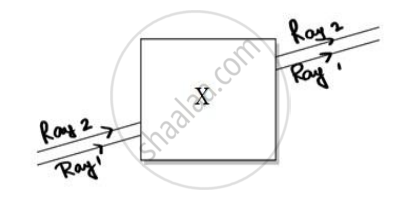
What could be the ‘X’ that she placed inside the box to make the rays behave as shown?
You are given water, mustard oil, glycerine and kerosene. In which of these media a ray of light incident obliquely at same angle would bend the most?
Which of the following ray diagrams is correct for the ray of light incident on a lens shown in Figure?
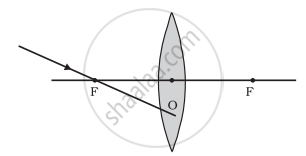
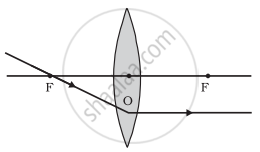 |
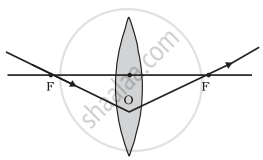 |
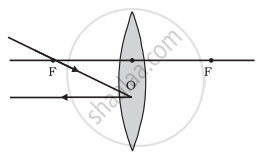 |
 |
| Fig. A | Fig. B | Fig. C | Fig. D |
Draw a ray diagram showing the path of rays of light when it enters with oblique incidence
- from air into water;
- from water into air.
The incident ray passing through ‘F of a mirror ______ after reflection.
The incident ray passing through C of a mirror ______ after reflection.
The incident ray is parallel to the principal axis of a mirror and ______ after reflection.
All distances parallel to the principal axis are measured from the ______ of the
mirror.
The angle of incidence is zero if a ray of light is incident normal to be surface separating the low media.
